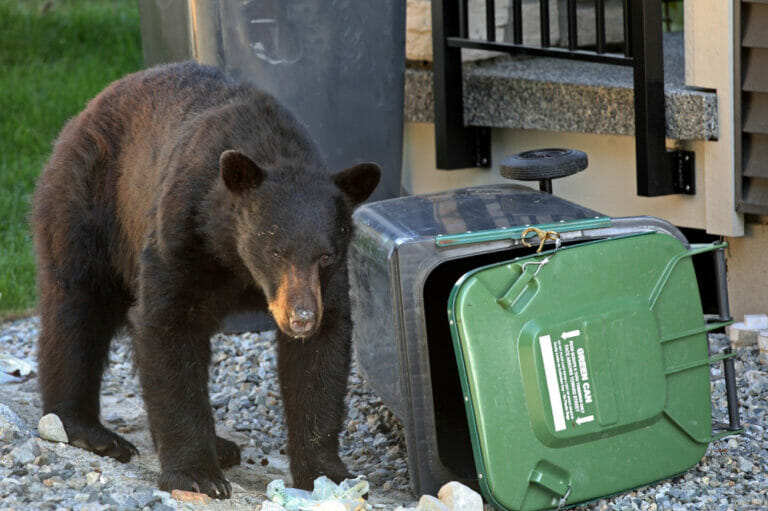We share our world with animals, and it’s important for humans to understand how their actions impact the wildlife around them. Sometimes things that seem ordinary and common to us can be devastating to an animal.
That’s what one heartbreaking story shows: after a sick bear had to be euthanized, wildlife officials discovered that it was a huge amount of human trash that led to his death.

According to a press release from Colorado Parks & Wildlife, a wild black bear was found in Telluride showing signs of distress. He was feverish and had puffy eyes, and was likely suffering from abdominal pain.
The bear was acting unusual: he didn’t respond to hazing and bluff charged a CPW officer. Based on his behavior and visible illness, the officers could tell that something was seriously wrong with the bear.
Ultimately, they made the decision to humanely euthanize the bear on September 9. Otherwise, the bear would’ve slowly starved to death.
“We could not leave a sick bear like this knowing it was suffering and struggling to survive,” CPW Area Wildlife Manager Rachel Sralla said in the press release. “When you have a very fat 400-pound bear, it will take it ages to starve to death. That’s a horrific way to die, decaying from the inside out for that long. As officers, we had to make an unfavorable call. It’s a call we wish we never had to make.”
After the bear was put down, a field necropsy revealed exactly what was causing the bear’s intestinal distress: indigestible human garbage.

Officials found that a plug consisting of paper towels, disinfectant wipes, napkins, plastic bags and wax food wrappers blocking the bear’s pylorus, causing his starvation.
“This plug was accompanied by french fries, green beans, onions and peanuts. The small and large intestines were empty of matter,” explained CPW District Wildlife Manager Mark Caddy. “The intestines were enlarged due to bacteria in the beginning stages of decomposition, but we opened them up in several locations and found no digested food matter.”
Telluride does have a municipal code requiring citizens to have a lid and locking mechanism on their garbage bins to prevent animals from getting into their trash; a first offense comes with a fine of $250.
But it’s clear that the ordinance is not being fully enforced, and people need to take the rule more seriously to protect the lives of wildlife.
“We need the community to follow that ordinance to be a better neighbor to our bears and prevent this type of incident from happening again.”

But it’s not just in Colorado — it’s a cautionary tale for people everywhere. Properly securing your garbage and recycling is important for protecting wildlife. Animals might ingest inedible garbage or get trapped in items like cans and jars.
It’s heartbreaking that this bear suffered like this and had to be euthanized. We have to remember the impact we have on the wildlife around us and take every step possible to protect animals.










